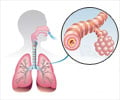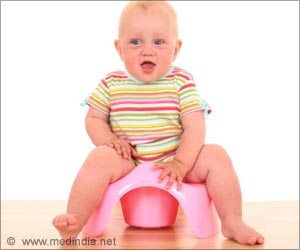Chest infection, not antibiotics, might cause wheezing in children. However antibiotics administered early could also trigger eczema, itchy skin and allergic hypersensitivity later.
Chest infection, not antibiotics, might cause wheezing in children, say Australian researchers.
It is generally known that children who are given antibiotics in their first three months often wheeze by 15 months of age, but latest research from the University of Otago, Wellington shows the wheezing could probably be traced to chest infections.However, antibiotics may have something to do with the development of allergic hypersensitivity by 15 months and still later eczema and itchy skin.
These are the key findings in a study led by the Director of the Wellington Asthma Research Group, Professor Julian Crane, and published in August 2008's edition of Clinical and Experimental Allergy.
Wellington Asthma Research Group followed a cohort of approximately 1000 children from Wellington and Christchurch from birth through to four years, collecting data on chest infections and antibiotic exposure at three months, 15 months and then yearly until four years of age.
A cohort study is a study in which subjects who presently have a certain condition and/or receive a particular treatment are followed over time and compared with another group who are not affected by the condition under investigation.
The present Wellington study allowed more accurate analysis of clinical cause and effect, compared to previous cross-sectional studies which only look at a sample of children at one particular point in time, it is pointed out.
Advertisement
"Our results strongly suggest that the reason that some children who've been given antibiotics appear to develop asthma is because they had a chest infection and the symptoms of the chest infection in young children can be confused with the start of asthma. Antibiotics are then given to treat this respiratory condition, which may or may not be asthma, and are not a cause as has been previously suggested," says Professor Crane.
Professor Crane says one of the background reasons for this study is that there has been debate in recent years over the role that antibiotics play in the development of asthma. The theory is that asthma has increased in line with antibiotic use over the last forty years. The contention has been that antibiotics reduce exposure to bacterial infection and may alter the normally healthy bacteria in the gut. In turn this may facilitate the development of allergy and asthma.
The study concludes, however, that much of the effect of antibiotics on the development of asthma in infancy can be explained by chest infections which are often difficult to distinguish from asthma at an early age.
Source-Medindia
GPL/M













